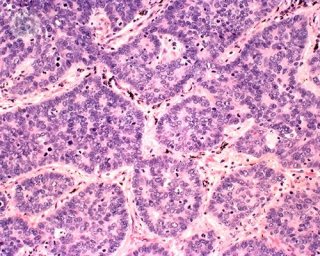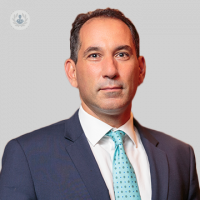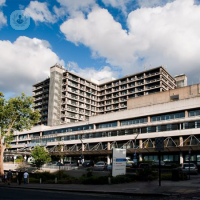Neuroendocrine tumours
Dr Helen Spoudeas - Paediatric endocrinology, diabetes & metabolism
Created on: 03-01-2017
Updated on: 01-05-2024

What are neuroendocrine tumours?
Neuroendocrine tumours (NETs) are a rare form of tumours that appear in the cells of the endocrine cell system. They can be cancerous (malignant) or non-cancerous (benign). There are different types of NETs, and the symptoms range from breathing difficulty, digestive disorders or hormone imbalances.
Where do neuroendocrine tumours appear in the body?
NETs can occur anywhere on the body but mostly occur in the lungs, appendix, small intestine, rectum and pancreas.
What are the symptoms of neuroendocrine tumours?
To begin with, neuroendocrine tumours do not always cause symptoms. General signs of a neuroendocrine tumour include:
- Pain from a growing tumour
- A lump that you can feel under the skin
- Feeling unusually fatigued
- Weight loss without trying
In cases where NETs produce excess hormones, it may lead to the following symptoms:
- Skin flushing
- Frequent urination
- Dizziness
- Shakiness
- Skin rash
How is a neuroendocrine tumour diagnosed?
The tests used to determine the NET depends on its location within the body. Your doctor will make a physical examination and look for any swollen lymph nodes. A blood and urine test will determine if there are any excess hormones, which are sometimes produced by NETs.
Imaging tests such as ultrasounds, CT or MRI scans will be required in order to create pictures of the tumour. In some cases of NETs, images are sometimes created using positron emission tomography (PET), which uses a radioactive tracer that is injected into the vein.
Finally, your doctor may perform a biopsy by removing a sample of cells from the site of the tumour.
What are the treatment options for neuroendocrine tumours?
Once the tumour has been diagnosed, the treatment process will depend on the location, stage and size of the tumour. Surgery will be required in order to remove the tumour and some of the healthy tissue that surrounds it.
Chemotherapy and radiotherapy may be used alongside surgery if there is a risk that the NET will return after surgery. These therapies may also be used if surgery is not an option for the patient.
Some targeted therapies known as everolimus (taken as a tablet) and sunitinib (a capsule) can also be used if surgery is not possible or if the NET is getting worse.
You may also be given medication called somatostatin analogues, such as octreotide or lanreotide, to stop the body from producing too many hormones and to slow the progression of the disease.
















